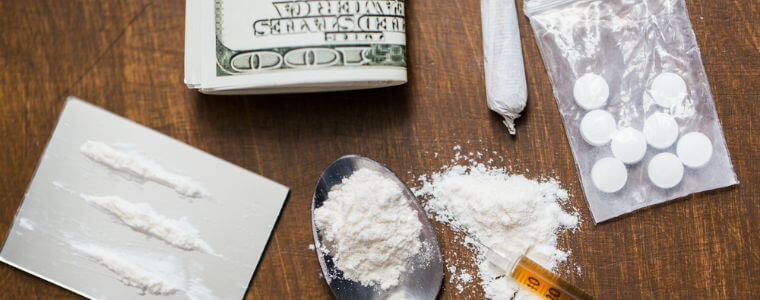What Is Possession of a Dangerous Drug in Texas?
In the State of Texas, the Penal Code defines possession of an illegal item as actual care, custody, control or management of that item. To prove a case, the State must prove beyond a reasonable doubt not only that the defendant had an illegal item, but that that the defendant had the item willingly, knowingly, or otherwise on purpose.
Under the law, what is considered a dangerous drug is just about anything that is ordinarily prescribed by a medical professional, is not already listed as a controlled dangerous substance under the Texas Controlled Substances Act, and comes with a warning or label that says something like “caution; federal law prohibits dispensing without prescription” or “Rx only” or “for use by or on the order of a licensed veterinarian only.”
What Is Considered a Dangerous Drug in Texas?
The Texas Controlled Dangerous Substances Act, Health and Safety Code has five Penalty Groups of prohibited drugs, each with increasingly severe fines and penalties ranging from Penalty Group 5 (marijuana, the lowest) to Penalty Group 1 (cocaine, heroin, and oxycodone, the highest).
The Xanax penalty group in Texas is Penalty Group 3, providing an example of one of the many drugs which may be prescribed legally, but is still considered a Controlled Dangerous Substance with hefty penalties attached if used illegally, or distributed, or held with the intent to distribute.
So, what is considered a “dangerous drug” in Texas? Dangerous drugs are the drugs that don’t make the lists for the Penalty Groups. Though the name “dangerous drugs” might makes them sound like something that would be sold on street corners in rough neighborhoods, dangerous drugs are actually those more run-of-the-mill drugs that most people will take at some point in their lifetime: think antibiotics, anti-depressants, and sleeping pills.
A dangerous drug can be an anti-anxiety medication one dorm roommate tries to give to another during finals. A drug can be a dangerous drug if you are carrying it in your jacket pocket, in a bottle different than the one it came from at the pharmacy, without a prescription. And you can get in big trouble for throwing away that prescription.
What Happens If You Get Caught with a Dangerous Drug?
A lot of things could happen if you get caught with prescription drugs and no prescription, and the consequences can be a lot worse than you might think. Conviction for possession of dangerous drugs comes with an automatic 180 day suspension of your driver’s license.
Depending on the quantity of the dangerous drug in your possession, fines and jail time are also a possibility. Possession of a dangerous drug in Texas in an amount of 28 grams or less could result in a dangerous drug charge and conviction of a Class A Misdemeanor, with a fine of up to $4,000, and one year in county jail.
If you are caught with more than 28 grams of a dangerous drug, the crime is a felony. The fine could be much higher, and you could go away for a lot longer. A dangerous drug can impact your life in many negative ways, requiring mandatory participation in a drug education program, interfering with your chances for future employment and housing opportunities.

How to Defend against a Dangerous Drug Charge in Texas
There are many ways that an expert drug possession defense lawyer in Houston, Texas can defend you if you face a dangerous drug charge. Defenses may be constitutional defenses or factual ones in your circumstances.
In either case, a skilled attorney may be able to use the available defenses to negotiate for dismissal of your drug charge with no more of a penalty than taking classes or performing community service. Constitutional defenses may result in a dismissal of the State’s case if the dangerous drugs were found by police due to an unlawful search of your home, vehicle, or physical person. Police need a warrant or probable cause to conduct a search, and if they don’t have a warrant or can’t prove probable cause, the results of the search are barred from being used as evidence against you in court under the Fourth Amendment.
Other defenses are based on the particular facts of your matter. A major defense for dangerous drug possession is that the possessor did not know that they had possession of the drug or that the drug was illegal. Having a valid prescription is another defense. Having another authorized purpose for possessing a dangerous drug is another defense, which could include possessing the drug as a law enforcement officer, warehouse worker or carrier, wholesaler, midwife caring for a pregnant woman who needs a certain drug, or medical researcher who is in possession of a certain drug for a legitimate purpose other than personal use or resale.
In fact, the Texas Health and Safety Code specifically provides exceptions for persons who possess dangerous drugs for lawful research, teaching, or testing in corporate setting, academic setting, or medical school.
To get help from an experienced Houston federal criminal defense attorney, please contact Seth Kretzer today!




